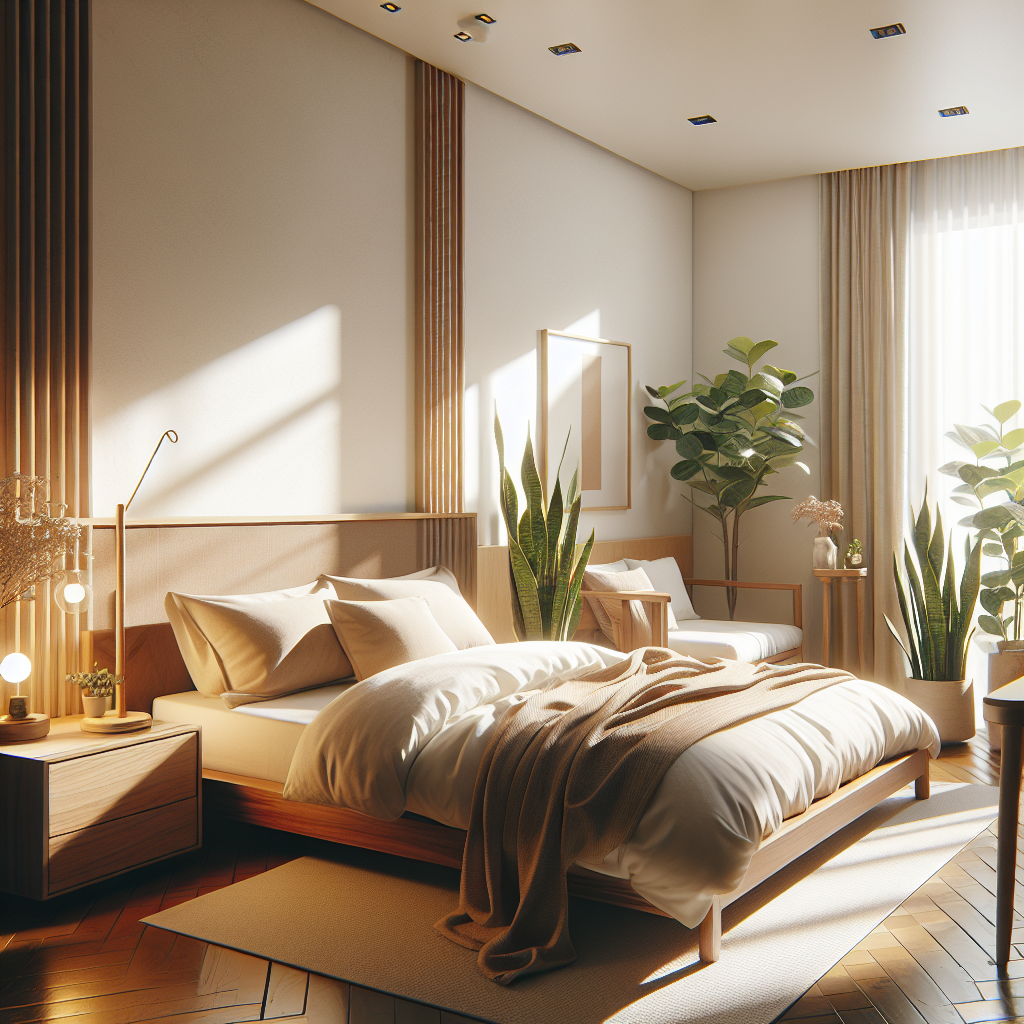Contents
- Can Feng Shui Affect Sleep? Unlocking the Secrets to a Restful Night
- Understanding Feng Shui
- Feng Shui and Sleep
- The Science Behind Feng Shui and Sleep
- Frequently Asked Questions
- Q: Can Feng Shui really affect my sleep?
- Q: How do I apply Feng Shui principles in my bedroom?
- Q: What are some Feng Shui-friendly colors for my bedroom?
- Q: Can I use Feng Shui to improve my overall well-being?
- Conclusion
- About Feng Shui Bliss
Can Feng Shui Affect Sleep? Unlocking the Secrets to a Restful Night
In the quest for a perfect night’s sleep, many of us have tried everything from changing our mattresses to altering our bedtime routines. But have you ever considered the impact of your bedroom’s layout and design on your sleep quality? Enter Feng Shui, an ancient Chinese practice that aims to balance and harmonize the energies in a given space. In this article, we’ll delve into the world of Feng Shui and explore how it can affect your sleep.
Understanding Feng Shui
Feng Shui, which translates to “wind-water” in English, is based on the principle that everything in the universe is connected and filled with energy, or Chi. This energy can be either positive (Sheng Chi) or negative (Sha Chi), and the goal of Feng Shui is to maximize the positive energy while minimizing the negative. By arranging objects and structures in a way that promotes the flow of positive Chi, practitioners believe that it can improve various aspects of life, including health, wealth, and relationships.
Feng Shui and Sleep
When it comes to sleep, Feng Shui offers several principles that can help create a conducive environment for restful nights. Here are some key tips:
Commanding Position: Place your bed in a commanding position, where you can see the door but not directly in line with it. This position provides a sense of safety and stability, promoting better sleep.
Bed Placement: Avoid placing your bed under a sloping ceiling or a visible ceiling beam, as these can cause health problems and disrupt the flow of positive Chi.
Headboard: Choose a solid wood headboard with smooth edges to provide security, support, and grounding. Avoid metal or glass headboards, as they can direct negative Chi towards you.
Color Scheme: Opt for soft, natural colors such as off-white, light brown, or clay yellow for your bed sheets and bedroom walls. These colors promote grounding energy and peaceful sleep. Avoid bright colors, especially red and yellow, as they can be too stimulating.
Clutter-Free: Keep your bedroom clutter-free and avoid placing exercise equipment, computers, or TVs in the room. These items can disrupt the flow of positive Chi and make it difficult to fall asleep.
Mirrors: Avoid placing mirrors in the bedroom, especially if they reflect the bed. Mirrors can create restlessness and worry by reflecting energy around the room.
Plants: Incorporate plants like snake plants or bamboo into your bedroom to filter indoor air and promote balance and harmony.
The Science Behind Feng Shui and Sleep
While Feng Shui is often viewed as a spiritual practice, there is some scientific evidence to support its impact on sleep. A study published in the journal “SEEJAD” found that participants who applied Feng Shui principles in their bedrooms reported improved sleep quality and overall well-being. The study suggested that Feng Shui can have a dynamic and direct connection with the level of living environment satisfaction, stress, and age.
Frequently Asked Questions
Q: Can Feng Shui really affect my sleep?
A: Yes, Feng Shui can affect your sleep by creating a conducive environment that promotes the flow of positive Chi.
Q: How do I apply Feng Shui principles in my bedroom?
A: Start by placing your bed in a commanding position, choosing a solid wood headboard, and opting for soft, natural colors. Avoid clutter, mirrors, and electronic devices in the bedroom.
Q: What are some Feng Shui-friendly colors for my bedroom?
A: Soft, natural colors such as off-white, light brown, or clay yellow are ideal for promoting grounding energy and peaceful sleep.
Q: Can I use Feng Shui to improve my overall well-being?
A: Yes, Feng Shui can help improve your overall well-being by creating balance and harmony in your living space.
Conclusion
Feng Shui offers a unique approach to improving sleep quality by creating a harmonious and balanced environment. By applying Feng Shui principles in your bedroom, you can promote the flow of positive Chi and enjoy restful nights. Whether you’re a believer in the spiritual aspects of Feng Shui or simply looking for a new approach to improving your sleep, these principles can have a profound impact on your overall well-being.
About Feng Shui Bliss
At Feng Shui Bliss, we’re dedicated to helping you achieve balance and harmony in your life through our selection of spiritual jewelry and accessories. Explore our collection today and discover how Feng Shui can transform your life.







